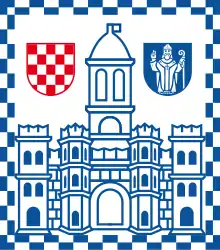KK Split
Košarkaški klub Split (English: Split Basketball Club), commonly referred to as KK Split or simply Split, is a men's professional basketball club based in Split, Croatia. The club competes in the ABA League and the Croatian League.
| Split | |||
|---|---|---|---|
 | |||
| Nickname | Žuti (The Yellows) | ||
| Leagues | ABA League Croatian League | ||
| Founded | 1945; 75 years ago | ||
| History | KK Hajduk (1945–1949) KK Split (1949–1967) KK Jugoplastika (1967–1990) KK POP 84 (1990–1991) KK Slobodna Dalmacija (1991–1993) KK Croatia Osiguranje (1993–1997) KK Split (1997–present) | ||
| Arena | Arena Gripe | ||
| Capacity | 3,500 | ||
| Location | Split, Croatia | ||
| Team colors | Yellow and Black | ||
| President | Domagoj Maroević | ||
| Team manager | Edo Blažević | ||
| Head coach | Ivica Skelin | ||
| Team captain | Mateo Kedžo | ||
| Championships | 3 EuroLeague 2 Korać Cup 3 Triple Crown 1 Croatian Championship 5 Croatian Cup 6 Yugoslav Championships 5 Yugoslav Cup | ||
| Website | www | ||
|
| |||
History
The club's roots are found in Hajduk sports society's basketball section, which was established in 1945. After three years of mostly sporadic activity, in 1948, the club established its own organizational structure known as KK Hajduk, which was independent of sports society. In the next year, 1949, the club changed its name to KK Split.
After competing in the Yugoslav lower divisions for more than a decade, the club finally made it to the Yugoslav top-tier level Yugoslav First Federal League, for the 1963–64 season, and it stayed there until the breakup of Yugoslavia.
In 1967, the club adopted - for sponsorship reasons - the name Jugoplastika (Jugoplastika was a factory of clothing, accessories, and footwear products, made from thermoplastic materials and fiberglass; the original predecessor of AD Plastik),[1] and kept it until the end of the 1989–90 season. In the next season, the club participated in the worldwide, national domestic, and European competitions, under the sponsorship of POP 84 (an Italian clothes company from Ancona).[2]
KK Split is among the most successful clubs in European basketball history. They are, together with the first champions of the competition, Rīgas ASK, the only team to win the EuroLeague trophy three times in a row. In the years 1989, 1990, and 1991, the team, which was known back then as Jugoplastika and POP 84, with players like Dino Rađa, Toni Kukoč, Žan Tabak, Velimir Perasović and Zoran Savić, won the European top-tier level basketball trophy.
Apart from these successes, the club also reached the FIBA European Champions Cup final in 1972, and the FIBA European Cup Winners' Cup final in 1973. It lost both finals against the 1970s Italian League superpower Ignis Varese, and the Soviet Union League club Spartak Leningrad. KK Split also won back-to-back FIBA Korać Cup titles in 1976, against Chinamartini Torino, and in 1977, against Alco Bologna.
Players
Current roster
Note: Flags indicate national team eligibility at FIBA sanctioned events. Players may hold other non-FIBA nationality not displayed.
| KK Split roster | |||||||||||||||||||||||||||||||||||||||||||||||||||||||||||||||||||||||||||||||||||||||||||||||||||||||||||||||||||||||||||||||||||||||||
|---|---|---|---|---|---|---|---|---|---|---|---|---|---|---|---|---|---|---|---|---|---|---|---|---|---|---|---|---|---|---|---|---|---|---|---|---|---|---|---|---|---|---|---|---|---|---|---|---|---|---|---|---|---|---|---|---|---|---|---|---|---|---|---|---|---|---|---|---|---|---|---|---|---|---|---|---|---|---|---|---|---|---|---|---|---|---|---|---|---|---|---|---|---|---|---|---|---|---|---|---|---|---|---|---|---|---|---|---|---|---|---|---|---|---|---|---|---|---|---|---|---|---|---|---|---|---|---|---|---|---|---|---|---|---|---|---|---|
| Players | Coaches | ||||||||||||||||||||||||||||||||||||||||||||||||||||||||||||||||||||||||||||||||||||||||||||||||||||||||||||||||||||||||||||||||||||||||
|
Updated: January 31, 2021 | ||||||||||||||||||||||||||||||||||||||||||||||||||||||||||||||||||||||||||||||||||||||||||||||||||||||||||||||||||||||||||||||||||||||||
Depth chart
| Pos. | Starting 5 | Bench 1 | Bench 2 | Bench 3 | Inactive |
|---|---|---|---|---|---|
| C | Antonio Vranković | Marin Marić | Mateo Kedžo | ||
| PF | Marko Luković | Viktor Šarić | |||
| SF | Darko Bajo | Luka Babić | Ivan Perasović | Pavle Marčinković | Lovre Runjić |
| SG | Roko Leni Ukić | Toni Perković | Roko Gizdavčić | ||
| PG | Sani Čampara | Ilija Đoković | Bruno Rebić |
FIBA Hall of Famers
| KK Split Hall of Famers | |||||
|---|---|---|---|---|---|
| Players | |||||
| No. | Nat. | Name | Position | Tenure | Inducted |
| 7 | Toni Kukoč | F | 1985–1991 | 2017[3] | |
Honours
Total titles: 24
Domestic competitions
- Winners (1): 2002–03
- Runners-up (6): 1992–93, 1993–94, 1995–96, 1996–97, 2000–01, 2007–08
- Winners (5): 1991–92, 1992–93, 1993–94, 1996–97, 2003–04
- Runners-up (2): 1995–96, 1998–99
- Yugoslav League (defunct)
- Winners (6): 1970–71, 1976–77, 1987–88, 1988–89, 1989–90, 1990–91
- Runners-up (6): 1971–72, 1973–74, 1974–75, 1975–76, 1978–79, 1979–80
- Yugoslav Cup (defunct)
- Winners (5): 1971–72, 1973–74, 1976–77, 1989–90, 1990–91
- Runners-up (5): 1969–70, 1974–75, 1984–85, 1987–88, 1988–89
- Yugoslav League 1. B (defunct)
- Winners (1): 1981–82
European competitions
- FIBA Saporta Cup (defunct)
- FIBA Korać Cup (defunct)
- European Basketball Club Super Cup (semi-official, defunct)
Worldwide competitions
- 4th place (1): 1973
Other competitions
- FIBA International Christmas Tournament (defunct)
Individual club awards
- Triple Crown
- Winners (2): 1989–90, 1990–91
- Small Triple Crown
- Winners (1): 1976–77
Top performances in European competitions
| Season | Achievement | Notes | |
|---|---|---|---|
| EuroLeague | |||
| 1971–72 | Final | lost to Ignis Varese, 69-70 in the final (Tel Aviv) | |
| 1977–78 | Semi-final group stage | 5th place in a group with Real Madrid, Mobilgirgi Varese, ASVEL, Maccabi Elite Tel Aviv and Alvik | |
| 1988–89 | Champions | defeated FC Barcelona 87–77 in the semi-final, defeated Maccabi Elite Tel Aviv 75–69 in the final of the Final Four in Munich | |
| 1989–90 | Champions | defeated Limoges CSP 101–83 in the semi-final, defeated FC Barcelona Banca Catalana 72–67 in the final of the Final Four in Zaragoza | |
| 1990–91 | Champions | defeated Scavolini Pesaro 93–87 in the semi-final, defeated FC Barcelona Banca Catalana 70–65 in the final of the Final Four in Paris | |
| 2000–01 | Quarter-finals | eliminated by Efes Pilsen, 69–95 (L) in Istanbul, 72–64 (W) in Split and 59–82 (L) in Istanbul | |
| FIBA Saporta Cup | |||
| 1972–73 | Final | lost to Spartak Leningrad, 62–77 in the final (Thessaloniki) | |
| 1974–75 | Semi-finals | eliminated by Crvena zvezda, 88–76 (W) in Split and 63-81 (L) in Belgrade | |
| 1985–86 | Quarter-finals | 3rd place in a group with FC Barcelona, Scavolini Pesaro and Landis&Gyr Wien | |
| 1992–93 | Quarter-finals | 3rd place in a group with Sato Aris, Hapoel Galil Elyon, Benfica, Pitch Cholet and Budivelnyk | |
| 1993–94 | Quarter-finals | 3rd place in a group with Smelt Olimpija, Taugrés, Fidefinanz Bellinzona, Tofaş and Rabotnički | |
| 1994–95 | Quarter-finals | 3rd place in a group with Olympique Antibes, Iraklis Aspis Pronoia, Maes Flandria, Kyiv and Fidefinanz Bellinzona | |
| FIBA Korać Cup | |||
| 1973–74 | Semi-finals | eliminated by Partizan, 97–108 (L) in Belgrade and 85–75 (W) in Split | |
| 1975–76 | Champions | defeated Chinamartini Torino, 97–84 (W) in Split and 82–82 (D) in Turin in the double finals of Korać Cup | |
| 1976–77 | Champions | defeated Alco Bologna, 87–84 in the final of Korać Cup in Genoa | |
| 1978–79 | Semi-finals | eliminated by Partizan, 96–97 (L) in Split and 96–98 (L) in Belgrade | |
| 1979–80 | Semi-finals | eliminated by Arrigoni Rieti, 75–86 (L) in Rieti and 104–97 (W) in Split | |
| FIBA Intercontinental Cup | |||
| 1973 | 4th | 4th place in a group with Ignis Varese, Sírio, Vaqueros de Bayamón and Lexington Marathon Oilers | |
| McDonald's Championship | |||
| 1989 | Final | defeated Philips Milano 102–97 in the semi-final, lost to Denver Nuggets 129–139 in the final (Rome) | |
| 1990 | Final | defeated FC Barcelona Banca Catalana 102–97 in the semi-final, lost to New York Knicks 101–117 in the final (Barcelona) | |
| 1991 | 4th | 4th place in Paris, lost to Montigalà Joventut 86–117 in the semi-final, lost to Limoges CSP 91–105 in the 3rd place game | |
The road to the European Cup victories
|
1975–76 FIBA Korać Cup
|
1976–77 FIBA Korać Cup
|
| |||||||||||||||||||||||||||||||||||||||||||||||||
|
1988–89 FIBA European Champions Cup
|
1989–90 FIBA European Champions Cup
|
1990–91 FIBA European Champions Cup
| ||||||||||||||||||||||||||||||||||||||||||||||||||||||||||||||||||||||||||||||||||||||||||||||||||||||||||||||||||
One of the greatest dynasties in European-wide basketball club competition history, came between 1989 and 1991, when Split simply dominated the FIBA European Champions Cup (EuroLeague) like no other team had in decades. Head coach Božidar Maljković, put together arguably one of the most talented young teams ever seen anywhere: featuring Toni Kukoč, Dino Rađa, Žan Tabak, Velimir Perasović, Zoran Sretenović, and Luka Pavićević, who joined forces with veterans like Duško Ivanović. In 1989, Jugoplastika reached the Final Four, along with heavy favorites FC Barcelona, Maccabi Elite Tel Aviv, and the very competitive Aris. Kukoč had 24 points and Ivanović had 21, to lead Split past FC Barcelona, by a score of 89–77, in the semifinals. Once in the final, Jugoplastika edged Maccabi 75–69, behind 20 points from Rađa, and 18 from an unstoppable Kukoč, whose combination of size, speed, and incredible court vision, turned him into a one-of-a-kind player.

Jugoplastika met FC Barcelona again, in the 1990 FIBA European Champions Cup Final Four, in Zaragoza, Spain. FC Barcelona was backed by thousands of fans, and managed to get a brief 61–59 lead, late in the second half, but Kukoč buried a couple of critical three-pointers, that sent Jugoplastika on its way to its second straight title. Kukoč finished the game with 20 points, and the EuroLeague Final Four MVP award, in his magic hands.
In most places, one can find that the European champions in 1991, were called POP 84, but that was just the name of the sponsor under which the talented players of KK Split were playing that season. Despite being without Dino Rađa and Duško Ivanović, the team from Split was led by a great Toni Kukoč, and a genius-like Zoran Savić, to their third consecutive title. Since the time when Rīgas ASK of the USSR League, won three straight European titles, in 1958, 1959, and 1960, no other team had won three in a row. And in the Final Four era, only two other teams besides Jugoplastika have been able to win even two consecutively (Maccabi Elite Tel Aviv in 2004 and 2005, and Olympiacos in 2012, and 2013).
In 1991, the competition provided some big surprises, leading up to the Final Four at Paris. English club Kingston Kings of the British Basketball League, eliminated CSKA Moscow, and what is more, with a double victory, 93–77 at home and 72–74 in Moscow. German club Bayer 04 Leverkusen of the Basketball Bundesliga, made its debut in the third round, but the other faces were well-known to everyone: FC Barcelona Banca Catalana ended first in that phase (11–3), POP 84 was second (9–5), and the other two Final Four teams would be Scavolini Pesaro and Maccabi Elite Tel Aviv, tied at 8–6. Once again, the first team of the previous round did not get the title. In a rematch of the previous year's final – an occurrence that has not been repeated since – the team from Split won 70–65, almost identical to the 1990 score (72–67). Thanks to a great performance by Savić, who scored 27 points, Jugoplastika had an historic three–peat.
Seasons in Yugoslavia
Split participated in the Yugoslav First Basketball League from the 1964 season, until the breakup of Yugoslavia, in summer of 1991 (except for 1981–82 season, when the club was relegated to the 2nd-tier level Yugoslav 1. B Federal Basketball League).
| Pos. | 64 | 65 | 66 | 67 | 68 | 69 | 70 | 71 | 72 | 73 | 74 | 75 | 76 | 77 | 78 | 79 | 80 | 81 | 82 | 83 | 84 | 85 | 86 | 87 | 88 | 89 | 90 | 91 |
|---|---|---|---|---|---|---|---|---|---|---|---|---|---|---|---|---|---|---|---|---|---|---|---|---|---|---|---|---|
| 1 | 1 | 1 | 1 | 1 | 1 | 1 | ||||||||||||||||||||||
| 2 | 2 | 2 | 2 | 2 | 2 | 2 | ||||||||||||||||||||||
| 3 | 3 | 3 | 3 | 3 | ||||||||||||||||||||||||
| 4 | ||||||||||||||||||||||||||||
| 5 | 5 | |||||||||||||||||||||||||||
| 6 | 6 | 6 | 6 | 6 | 6 | |||||||||||||||||||||||
| 7 | ||||||||||||||||||||||||||||
| 8 | 8 | |||||||||||||||||||||||||||
| 9 | 9 | |||||||||||||||||||||||||||
| 10 | 10 | 10 | ||||||||||||||||||||||||||
| 11 | 11 | |||||||||||||||||||||||||||
| 12 | ||||||||||||||||||||||||||||
| 1B | 1 |
Notable players
Note: Flags indicate national team eligibility at FIBA sanctioned events. Players may hold other non-FIBA nationality not displayed.
| Criteria |
|---|
|
To appear in this section a player must have either:
|
 Branko Radović
Branko Radović Ivan "Trica" Bartulović
Ivan "Trica" Bartulović Ratomir Tvrdić
Ratomir Tvrdić Josip Vranković
Josip Vranković Roko Leni Ukić
Roko Leni Ukić Nikola Vujčić
Nikola Vujčić Dino Rađa
Dino Rađa Damir Šolman
Damir Šolman Duje Krstulović
Duje Krstulović Mirko Grgin
Mirko Grgin Branko Macura
Branko Macura Toni Kukoč
Toni Kukoč Velimir Perasović
Velimir Perasović Zoran Čutura
Zoran Čutura Petar Skansi
Petar Skansi Zdenko Prug
Zdenko Prug Mlađan Tudor
Mlađan Tudor Ivica Dukan
Ivica Dukan Željko Jerkov
Željko Jerkov Željko Poljak
Željko Poljak Damjan Rudež
Damjan Rudež Žan Tabak
Žan Tabak Goran Sobin
Goran Sobin Ivica Burić
Ivica Burić Aramis Naglić
Aramis Naglić Luka Babić
Luka Babić Andrija Žižić
Andrija Žižić Nikola Prkačin
Nikola Prkačin Ermal Kuqo
Ermal Kuqo Krešimir Lončar
Krešimir Lončar Franjo Arapović
Franjo Arapović Vedran Vukušić
Vedran Vukušić Joško Poljak
Joško Poljak Damir Rančić
Damir Rančić Igor Miličić
Igor Miličić Teo Čizmić
Teo Čizmić Franko Kaštropil
Franko Kaštropil Srđan Subotić
Srđan Subotić Hrvoje Henjak
Hrvoje Henjak Ivan Tomeljak
Ivan Tomeljak Ante Grgurević
Ante Grgurević Damir Tvrdić
Damir Tvrdić Ivan Mimica
Ivan Mimica Ante Toni Žižić
Ante Toni Žižić Dragan Bender
Dragan Bender Jere Macura
Jere Macura Ante Delaš
Ante Delaš Mario Delaš
Mario Delaš Josip Sobin
Josip Sobin Ivan Siriščević
Ivan Siriščević Bruno Šundov
Bruno Šundov Živko Badžim
Živko Badžim Toni Dijan
Toni Dijan Filip Krušlin
Filip Krušlin Hrvoje Perić
Hrvoje Perić Petar Naumoski
Petar Naumoski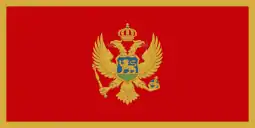 Luka Pavićević
Luka Pavićević Duško Ivanović
Duško Ivanović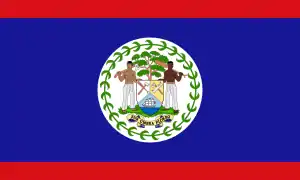 Marlon Garnett
Marlon Garnett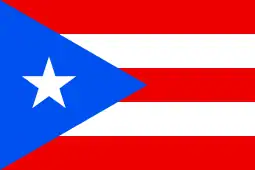 Larry Ayuso
Larry Ayuso Jurij Zdovc
Jurij Zdovc Peter Vilfan
Peter Vilfan Drago Peterka
Drago Peterka Mihajlo Manović
Mihajlo Manović Zoran Sretenović
Zoran Sretenović Zoran Savić
Zoran Savić Terrence Rencher
Terrence Rencher Steve Colter
Steve Colter Ray "Sugar" Richardson
Ray "Sugar" Richardson Avie Lester
Avie Lester Jamon Gordon
Jamon Gordon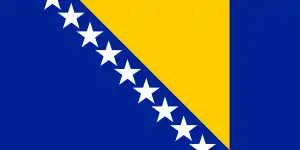 Damir Mršić
Damir Mršić Andrija Stipanović
Andrija Stipanović Sejo Bukva
Sejo Bukva Dejan Ivanov
Dejan Ivanov Tony Akins
Tony Akins
Players at the NBA draft
| ^ | Denotes player who has been inducted to the Naismith Memorial Basketball Hall of Fame |
| Position | Player | Year | Round | Pick | Drafted by |
|---|---|---|---|---|---|
| PF/C | 1989 | 2nd round | 40th | Boston Celtics | |
| SF/PF | 1990 | 2nd round | 29th | Chicago Bulls | |
| C | 1991 | 2nd round | 51st | Houston Rockets | |
| C | 1998 | 2nd round | 35th | Dallas Mavericks | |
| PG/SG | 2005 | 2nd round | 41st | Toronto Raptors |
Head coaches
 Enzo Sovitti
Enzo Sovitti Branko Radović
Branko Radović.svg.png.webp) Srđan Kalember
Srđan Kalember Petar Skansi
Petar Skansi Matan Rimac
Matan Rimac Zoran Grašo
Zoran Grašo Krešimir Ćosić
Krešimir Ćosić Zoran Slavnić
Zoran Slavnić Božidar Maljković
Božidar Maljković Željko Pavličević
Željko Pavličević
 Slobodan Subotić
Slobodan Subotić Josip "Pino" Grdović
Josip "Pino" Grdović Predrag Kruščić
Predrag Kruščić
KK Split: Odyssey in Yellow (2015 Documentary)
There are nostalgic moments when you look closely in the past and liked it that you look left in times of success as long as possible. Such moments usually occur when the present knows no success, when the bleak and when it is difficult to find prospects. Again, anniversaries are there for those moments. The documentary film 70 years of KK Split: Odyssey in yellow,[4] which was broadcast 1 December 2015 on HRT in the appropriate project in which this, a number of reasons stumbled, basketball giant revives glorious past. Jugoplastika, by FIBA, was declared the best basketball collective in the 20th century, which is deeply woven into the history of Croatian basketball, and the movie The Odyssey in yellow in just over eighty minutes evokes important moments in the history of Split, Croatian and Yugoslav basketball.
It is impossible to talk about any sport in Split, and not to mention Hajduk. Odyssey in yellow mentions that in infected football, basketball began. The beginning of basketball in Split bind for women's basketball, men's section began a little later. Elvira Čulić Carbonini, at the beginning of the film, is about establishing women's basketball team which was the first game played in 1945 against the Zadar team. This game, in addition to the defeat, caused the perception that the "basketball is sport for women." Vinko Bajrović spoke on the playground at Spinut, where he began the tradition of men's basketball in Split. People who have passed the courses did not understand how men can practice basketball. The perception started to change after the arrival of Branko Radović. Radović has laid the foundation of modern work that later led to the first great success of the Split basketball.
The first phase of a documentary film speaks about the first great, legendary generation of Split basketball. These players were the key part of the Yugoslav team that won the 1970 World Championship in Ljubljana, and referred to in the movie We will be world champions. The name under which the club achieved the greatest success bringing the first signed a sponsorship deal the club and the company. Club after moving to Arena Gripe, a signature sponsorship speech and arrival Damir Šolman city known shaft Skansi–Šolman–Rato Tvrdić bringing the first championship of Yugoslavia, 1970–71. The story of this generation continues and the first European Cup Final of Europe, Jugoplastika unfortunate loses 70–69 of the Italian Ignis in 1972. This generation that is with Krešo Ćosić represented the backbone of the Yugoslav national team and winning the World Cup, dropped the chance to become European champions for one last ball. The work of Petar Skansi worth mentioning in the coaching segment and the construction of a new, successful generation of the club. Generation led by Jerkov and Krstulović, the hoarder departing won 2 FIBA Korać Cups.
"You know when you will certainly give the basket," said Jerkov, "when you stop and think when you're doing everything by instinct." Most emotional moment of the film and milestone between two geniuses generation forgiveness is a hoarder Rate of active play. Mladen Delić in his distinctive style, comments that forgiveness and thus creates the atmosphere of which is, frankly, a man stands on end.
The second phase of the documentary film speaks about the most famous period - trophies during the 80s. Skansi, Slavnić, Trninić and Krešo Ćosić laid the foundations of inserting "yellow chickens" in the first team, and their work has been upgraded to the professional and meticulous work of Božidar Maljković. Trninić talk about how "every success there are more fathers". You have to respect those who were before you, who have set certain foundations". After Maljković's arrival, the Split team where they played Kukoč, Rađa, Ivanović, Sretenović, Perasović and other eighties dominated Europe, a team player and Maljković is explained through statements that could be considered on the basis of sports psychology and creating a healthy atmosphere and attitude in team sport. Maljković expertise and ingenuity of players has led to the domination of the European Cup which became legendary. The last European title, but called POP 84, led by Željko Pavličević was a special surprise. But equally, the swan song of a great generation. Odyssey in yellow speaks about the period after the collapse of Yugoslavia. The existence of the club in the nineties, while Cibona's dominance is also touched upon in the film. Rađa's back and winning Croatian league title, with Zdovc and Sesar, made Split last championship title, and just under Zdovc's leadership team wins the Croatian Cup as their last trophy.
Odyssey in yellow is a film that is as archival compilation followed statements by participants agreed screenwriter Mladen Capin, a director Tomislav Mršić all gave a touch nostalgic patina that usually last successes contain. "Odyssey in yellow" is a journey into some better days when the club from Gripe travelled across Europe and caused respect in European and global scale. Today, when the yellow submarine ship more than anything else we can not sing the song popular Beatles to feel better. It is a pity. If it is true that the development of society can be measured attitude to the legends. "Jugoplastika", "POP 84" or "KK Split" certainly is one of those legends. Although today is far from glorious days, do not play no regional division and is located before shutting down, I hope you will find in a good mood that would help the aged seventy avoid the fate of the company under whose name the greatest success.
References
- http://www.adplastik.hr/en/19-company-history/
- https://www.pop84.com/story
- "FIBA.basketball". FIBA.basketball. Retrieved 20 August 2019.
- Recenzija: KK Split: Odiseja u žutom. 15 December 2015. Retrieved 21 November 2020.
External links
- Official website of KK Split (in Croatian)
- KK Split at Eurobasket.com

